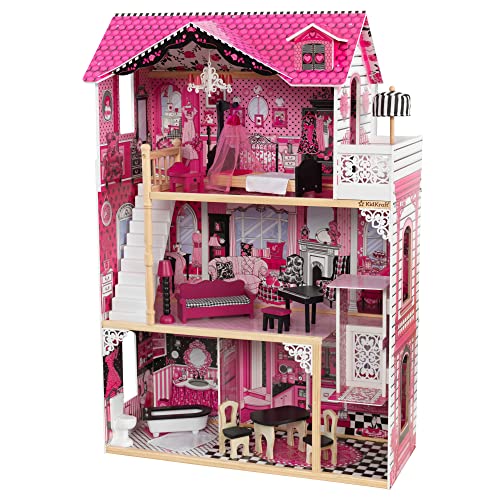Development of Cognitive and Physical Skills
Playing with a dollhouse offers numerous benefits for children’s development. One of the key advantages is the development of cognitive and physical skills. When children engage in imaginative play with dollhouses, they are required to use their fine motor skills to manipulate small objects and move the dolls around. This helps in enhancing their hand-eye coordination and dexterity. Additionally, children also engage in problem-solving as they set up the dollhouse, arrange the furniture, and create different scenarios, which promotes their cognitive skills and creativity.
Language and Communication Development
Playing with a dollhouse can also greatly contribute to the language and communication development of children. As they engage in pretend play, children often create different storylines and dialogue for the dolls, which encourages them to practice their language skills. They learn new words, develop their vocabulary, and work on their pronunciation as they engage in conversations between the dolls. This kind of play also promotes social skills as children learn how to take turns, negotiate, and cooperate with others while engaging in imaginative play.
Emotional Development and Empathy
Playing with a dollhouse can be a powerful tool for emotional development and the cultivation of empathy. When children play with dolls and act out different scenarios, they have the opportunity to explore emotions and relationships. They can imitate conversations and interactions, expressing feelings of joy, sadness, anger, or love. Through this play, children learn to recognize and understand emotions, both their own and those of others. They develop empathy as they project their own feelings onto the dolls and learn to consider the emotions and perspectives of others.
Problem-Solving and Decision-Making Skills
Engaging in play with a dollhouse can help children develop problem-solving and decision-making skills. As they set up the dollhouse and arrange the furniture and accessories, they need to consider spatial relationships and make decisions about where things should go. They may face challenges such as limited space or finding creative solutions to design problems. This type of play encourages children to think critically, plan, and make decisions based on their own preferences. They learn to evaluate different options, understand cause and effect, and develop problem-solving strategies, all of which are essential skills for their future success.
Role Play and Imagination
Dollhouse play promotes role play and the use of imagination. Children have the opportunity to take on different roles and explore various scenarios. They can become caretakers, parents, doctors, or even superheroes as they engage in pretend play with the dolls. This type of play helps children develop their imagination and creativity, allowing them to invent stories, create different settings, and explore new worlds. Role play with a dollhouse allows children to act out real-life situations, helping them make sense of the world around them and develop a deeper understanding of themselves and others.






